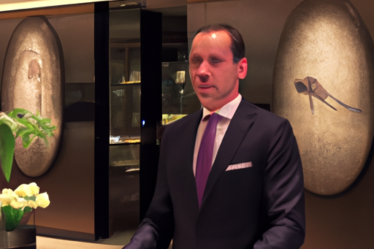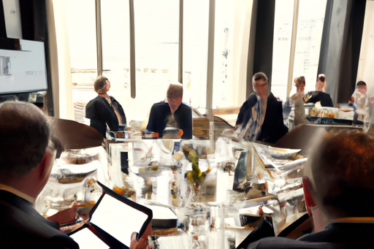
Customer Service: Mastering the Art of Guest Satisfaction
Customer Service: Mastering the Art of Guest Satisfaction
In the hospitality industry, customer service is the backbone of success. Whether you’re working in a hotel, restaurant, or any other hospitality establishment, your ability to provide exceptional customer service can make or break your career. It’s no wonder that mastering the art of guest satisfaction is one of the top essential skills for a standout hospitality resume.
First and foremost, effective communication is key when it comes to providing excellent customer service. Being able to listen attentively to guests’ needs and concerns, and responding in a clear and friendly manner, is essential. This includes not only verbal communication but also non-verbal cues such as body language and facial expressions. A warm smile and a genuine willingness to help can go a long way in making guests feel welcome and valued.
Another important skill in the realm of customer service is empathy. Understanding and empathizing with guests’ concerns or frustrations can help diffuse tense situations and turn them into positive experiences. Being able to put yourself in the shoes of the guest and genuinely care about their satisfaction is crucial. This can involve actively seeking feedback, addressing any issues promptly, and going above and beyond to exceed expectations.
Attention to detail is also a vital skill in the hospitality industry. Guests often have specific preferences or requests, and being able to remember and fulfill these details can make a significant difference in their experience. Whether it’s remembering a guest’s preferred room temperature or their favorite drink, paying attention to the little things shows that you genuinely care about their comfort and satisfaction.
Flexibility and adaptability are also essential skills in the fast-paced world of hospitality. Guests’ needs can change at a moment’s notice, and being able to quickly adjust and accommodate their requests is crucial. This may involve rearranging reservations, finding alternative solutions, or simply being able to think on your feet. Being flexible and adaptable shows that you are committed to providing the best possible service, no matter the circumstances.
Problem-solving skills are another key aspect of customer service. Guests may encounter various issues during their stay, and being able to effectively and efficiently resolve these problems is essential. This may involve collaborating with other team members, finding creative solutions, or simply being resourceful. Being a problem solver shows that you are proactive and dedicated to ensuring guests have a positive experience.
In addition to these skills, a standout hospitality resume should also highlight your ability to work well in a team. Collaboration and teamwork are crucial in the hospitality industry, as many tasks require coordination with colleagues from different departments. Being able to communicate effectively, delegate tasks, and support your team members can contribute to a seamless and enjoyable experience for guests.
Lastly, a positive attitude is a must-have skill in the realm of customer service. Hospitality can be a demanding industry, and being able to maintain a friendly and positive demeanor even in challenging situations is essential. A positive attitude not only helps create a welcoming atmosphere for guests but also inspires and motivates your colleagues.
In conclusion, mastering the art of guest satisfaction is a crucial skill in the hospitality industry. Effective communication, empathy, attention to detail, flexibility, problem-solving, teamwork, and a positive attitude are all essential skills that can set you apart in the competitive world of hospitality. By honing these skills and showcasing them on your resume, you can increase your chances of standing out and landing your dream job in the industry.
Communication: Effective Interactions in the Hospitality Industry

Effective communication is a crucial skill in any industry, but it is especially important in the hospitality industry. As a hospitality professional, you will be interacting with a wide range of people, from guests to colleagues to management. Being able to communicate effectively can make a huge difference in your ability to provide excellent customer service and succeed in your career.
One of the most important aspects of effective communication in the hospitality industry is being able to listen actively. When interacting with guests, it is important to listen carefully to their needs and preferences. This will allow you to provide personalized service and ensure that their experience is a positive one. Active listening also involves asking clarifying questions and repeating back information to ensure that you have understood correctly.
In addition to listening, being able to speak clearly and confidently is also essential. When communicating with guests, it is important to speak in a friendly and professional manner. This includes using appropriate language and tone, as well as being able to explain complex information in a way that is easy for guests to understand. Speaking confidently will help to build trust with guests and make them feel comfortable.
Written communication skills are also important in the hospitality industry. This includes being able to write clear and concise emails, memos, and reports. Good writing skills are essential for communicating with colleagues and management, as well as for documenting important information. Being able to write effectively will help to ensure that your messages are understood and that you are able to convey your ideas and thoughts clearly.
Non-verbal communication is another important aspect of effective communication in the hospitality industry. This includes body language, facial expressions, and gestures. Non-verbal cues can convey a lot of information and can greatly impact how others perceive you. It is important to be aware of your non-verbal communication and to use it to your advantage. For example, maintaining eye contact and smiling can help to build rapport with guests and make them feel welcome.
In addition to these basic communication skills, there are also some industry-specific skills that are important for hospitality professionals. For example, being able to speak multiple languages can be a huge asset in the hospitality industry, especially in areas with a diverse range of guests. Being able to communicate in a guest’s native language can make them feel more comfortable and can help to provide a higher level of service.
Another important communication skill in the hospitality industry is being able to handle difficult situations and resolve conflicts. In any customer service role, there will inevitably be times when you have to deal with unhappy or difficult guests. Being able to remain calm and composed, and to communicate effectively in these situations, is essential. This includes being able to empathize with the guest, actively listen to their concerns, and find a solution that meets their needs.
Overall, effective communication is a key skill for hospitality professionals. It is important to be able to listen actively, speak clearly and confidently, write effectively, and use non-verbal communication to your advantage. Additionally, industry-specific skills such as speaking multiple languages and handling difficult situations are also important. By honing these communication skills, you can ensure that you stand out in the hospitality industry and provide exceptional service to your guests.
Leadership: Developing Strong Management Skills in Hospitality
Are you looking to make a career in the hospitality industry? If so, having a standout resume is essential to land your dream job. One of the key areas that employers in the hospitality industry look for is strong leadership and management skills. In this article, we will discuss the top 11 essential skills for a standout hospitality resume, with a focus on developing strong management skills.
First and foremost, effective communication is crucial in any leadership role. As a manager in the hospitality industry, you will be responsible for overseeing a team of employees and ensuring that everyone is on the same page. Being able to clearly convey instructions, expectations, and feedback is essential for a smooth operation.
In addition to communication, problem-solving skills are also highly valued in the hospitality industry. As a leader, you will encounter various challenges on a daily basis, from handling customer complaints to resolving conflicts among staff members. Being able to think quickly on your feet and come up with creative solutions is a valuable asset.
Furthermore, having a strong sense of organization and attention to detail is vital in a management role. In the fast-paced environment of the hospitality industry, there are numerous tasks and responsibilities that need to be managed simultaneously. Being able to prioritize and stay organized will help ensure that nothing falls through the cracks.
Another important skill for a standout hospitality resume is the ability to work well under pressure. The hospitality industry is known for its demanding and high-stress nature, especially during peak seasons or busy periods. Being able to remain calm and composed in stressful situations is crucial for effective leadership.
Moreover, having a customer-centric mindset is essential in the hospitality industry. As a manager, you will be responsible for ensuring that guests have a positive experience and that their needs are met. Being able to anticipate customer needs and provide exceptional service is a key skill that employers look for.
In addition to these skills, having a strong work ethic and being able to lead by example is also highly valued in the hospitality industry. As a manager, you will be expected to set the tone for your team and demonstrate a strong work ethic. This includes being punctual, reliable, and willing to go above and beyond to ensure the success of the business.
Furthermore, being adaptable and flexible is crucial in the ever-changing hospitality industry. From last-minute changes in reservations to unexpected staffing issues, being able to adapt to new situations and find solutions is a valuable skill for a hospitality manager.
Additionally, having a strong knowledge of the industry and staying up to date with the latest trends and developments is important for effective leadership. This includes understanding the market, knowing your competition, and being aware of industry best practices.
Lastly, having a positive attitude and being able to motivate and inspire your team is essential for successful leadership in the hospitality industry. Creating a positive work environment and fostering a sense of teamwork and camaraderie will not only improve employee morale but also contribute to the overall success of the business.
In conclusion, developing strong management skills is crucial for a standout hospitality resume. Effective communication, problem-solving, organization, and the ability to work well under pressure are just a few of the essential skills that employers look for. Additionally, having a customer-centric mindset, a strong work ethic, and being adaptable and flexible are also highly valued in the industry. By showcasing these skills on your resume, you will increase your chances of landing your dream job in the hospitality industry.


